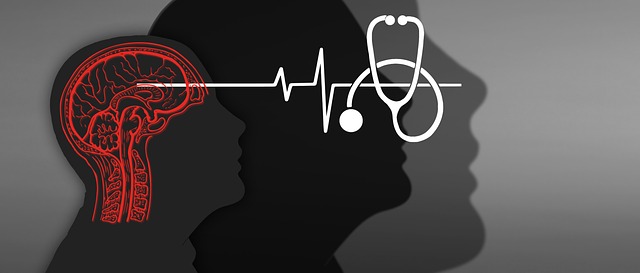Early recognition of depression in young children is crucial. Parents should watch for signs like irritability, changes in routine, and social withdrawal. Therapy, especially Cognitive Behavioral Therapy (CBT), along with independent medical evaluations, can effectively prevent and manage depression. These approaches combine CBT with play/art therapy to create safe emotional expression spaces. Integrating self-care practices and lifestyle changes further bolsters resilience against depression through holistic support.
Depression among young children is a growing concern, yet it’s often overlooked due to its subtle nature. This article explores comprehensive strategies to prevent and address this issue, focusing on early identification and effective interventions. We delve into recognizing depression in kids through examining signs and symptoms, with a special emphasis on therapy. Learn about the role of independent medical evaluations and discover practical lifestyle changes and supportive environments that foster resilience. Key topics include therapy tailored for young children and the crucial aspect of independent medical assessments.
- Recognizing Depression in Young Children: Early Signs and Symptoms
- The Role of Therapy: Effective Approaches for Kids
- Independent Medical Evaluations: When and Why They Are Necessary
- Fostering Resilience: Lifestyle Changes and Supportive Environment
Recognizing Depression in Young Children: Early Signs and Symptoms

Recognizing depression in young children is crucial as early intervention can significantly impact their future well-being. While adults may display overt signs of sadness or despair, children often express their emotional distress through subtle changes in behavior and mood. Parents and caregivers should be vigilant for persistent irritability, a significant drop in grades, changes in appetite or sleep patterns, withdrawal from social activities, and difficulty concentrating. These early signs can indicate a need for professional help.
Therapy for young children, such as cognitive-behavioral therapy (CBT), has been shown to be effective in treating depression. Independent medical evaluations can also play a vital role by providing a comprehensive assessment of the child’s mental health status. Communication strategies, stress management techniques like mindfulness and relaxation exercises, and stress reduction methods are additional tools that parents can employ to support their children’s emotional resilience and prevent the onset or escalation of depressive symptoms.
The Role of Therapy: Effective Approaches for Kids

Therapy plays a crucial role in depression prevention for young children, offering effective approaches to address underlying issues and build coping mechanisms. For kids, therapy can be tailored to their unique needs and developmental stages through various evidence-based methods. Cognitive Behavioral Therapy (CBT), for instance, is widely used to help children identify and change negative thought patterns and behaviors associated with depression. This approach empowers them with skills to manage stress, enhance self-care practices, and promote mental wellness.
Independent Medical Evaluations can also facilitate early intervention by identifying risk factors and determining the most suitable therapy types. By combining CBT with other therapeutic modalities, such as play therapy or art therapy, professionals create a supportive environment where young minds can explore their emotions, build resilience, and develop healthy coping strategies. Moreover, integrating Self-Care Practices into therapy encourages children to prioritize their emotional well-being, fostering a sense of autonomy and empowerment in managing stress and preventing depression.
Independent Medical Evaluations: When and Why They Are Necessary

In some cases, especially when depression is suspected in young children or when pre-existing conditions may contribute to emotional distress, an Independent Medical Evaluation (IME) becomes crucial. This comprehensive assessment goes beyond typical therapy sessions and involves a multidisciplinary team of healthcare professionals who evaluate various aspects of a child’s physical and mental well-being. The IME is necessary when conventional treatment plans fail to yield significant improvements or when there are concerns about underlying medical conditions that could be exacerbating emotional issues, such as learning disabilities or chronic illnesses.
By incorporating an IME into the depression prevention strategy for young individuals, healthcare providers gain valuable insights into their overall health status, including cognitive functioning, sensory processing, and potential environmental factors. This approach ensures a more personalised treatment plan, encompassing not just therapy for young children but also addressing any identified physical or developmental concerns through collaborative efforts between paediatricians, psychologists, and other relevant specialists. Consequently, it facilitates the development of a holistic self-care routine focused on emotional regulation and positive thinking, ultimately enhancing long-term mental health resilience.
Fostering Resilience: Lifestyle Changes and Supportive Environment

Fostering resilience is a key strategy in depression prevention, especially for young children. Lifestyle changes play a significant role in building mental fortitude. Encouraging regular physical activity, healthy eating habits, and adequate sleep can significantly boost mood and overall well-being. These simple yet powerful tools help regulate brain chemistry and promote emotional healing processes.
A supportive environment is equally crucial. Engaging in therapy for young children, especially when coupled with independent medical evaluations, can provide the necessary framework for resilience development. Stress management workshops organized by mental health professionals offer valuable skills to navigate life’s challenges. Additionally, risk assessment tools help identify vulnerable individuals, enabling early intervention and support, which are vital in preventing depression from taking root.
Depression in young children is a serious but preventable condition. By recognizing early signs, such as persistent sadness or changes in appetite, parents and caregivers can take proactive steps. Effective therapy, including cognitive-behavioral therapy (CBT) and interpersonal psychotherapy (IPT), has proven benefits for kids facing depression. In some cases, independent medical evaluations are necessary to rule out underlying physical causes and guide tailored treatment plans. Fostering resilience through lifestyle changes, such as regular exercise and a supportive environment, can significantly enhance a child’s mental well-being. Combining these strategies empowers us to navigate and overcome childhood depression effectively.










